Description of the Qingdao tomato variety, its yield and cultivation
Choosing a tomato variety is a responsible process. For each gardener, this is an individual selection of species for their site. It is necessary not only to pay attention to the external data, but also to study in more depth the characteristics of Qingdao tomatoes.
Basic ideas about the variety
To get the declared yield, it is necessary to grow tomatoes correctly. The description of the variety contains all the necessary information, it will help to correctly position the plant on the site, to properly care for it.
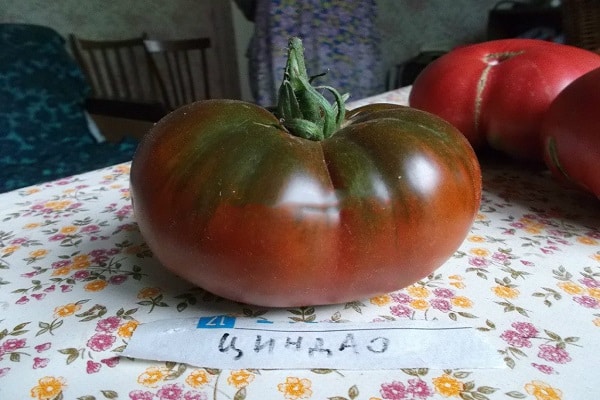
Plant:
- Bush: indeterminate.
- Height: 1.2–1.3 m.
- Number of tomatoes in a brush: 7-9 pcs.
- Ripening period: 110-120 days.
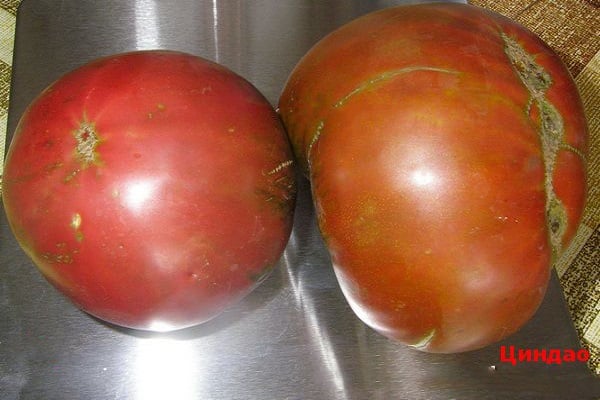
Fruit:
- Shape: flat-round.
- Mass: 200-400 gr.
- Color: dark brown.
- Density: high.
- Number of cameras: many.
- Taste: sweet.
- Transportability: Poor.
- Shelf life: several days.
Planting and caring for plants
Growing tomatoes is a simple process, the main thing is to follow all the necessary agrotechnical techniques. Seeds for seedlings are sown 2 months before planting in the ground. Planting dates are calculated individually, taking into account the characteristics of the growing region.
To improve the performance of the bush, you can remove the growth point. Then the fruits will be larger.
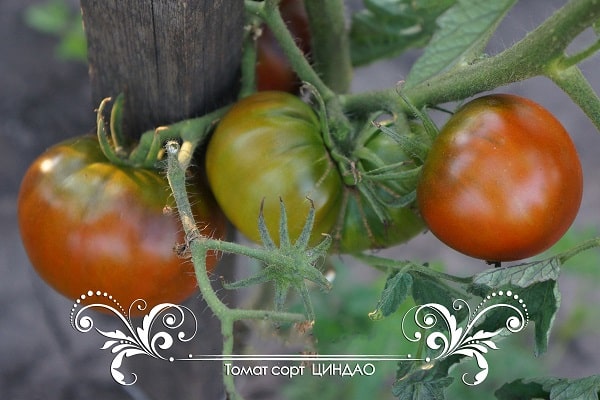
In the phase of appearance of 2 true leaves, tomatoes dive. Quenching is mandatory. Getting used to sunlight makes plants less stressful when transplanted to a permanent location. It is recommended to plant 3 plants per 1 m2... Forming and tying to the supports is required. Summer residents recommend forming 2-3 stems.
Tomatoes are watered most often in the evening. It is desirable that the water is warm. You can feed it with complex fertilizers. At least 2 times when they are blooming and actively ripening.
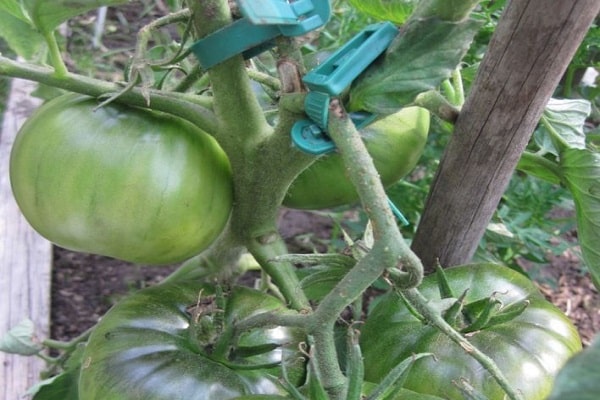
Harvest volume and application
Productivity is an important criterion for choosing a variety. Qingdao tomatoes are capable of producing about 10 kg per plant. So 1 m2 will give 25-30 kg.
The use is mainly only for processing, since they are not suitable for preservation whole. Perfect for juices, ketchups and other tomato derivatives. From the reviews of summer residents, it is clear that the taste of a tomato does not change, regardless of the place of ripening at home or on a bush.
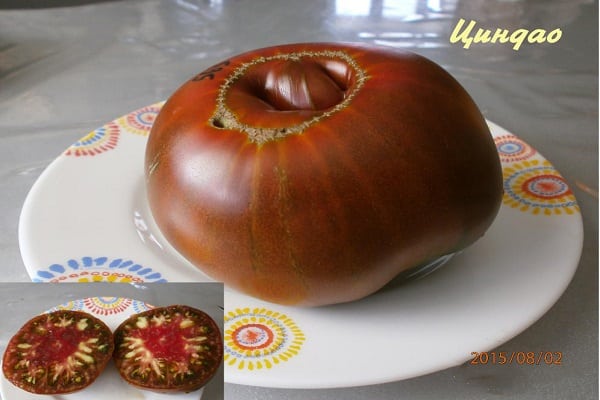
Disease susceptibility
It is recommended that preventive measures be taken to control diseases. Otherwise, there will be a decrease in the volume of the crop or even the death of the bush.
Positive and negative sides of the variety
Dividing the properties of a tomato into positive and negative helps the gardener make the final choice in favor of the species.
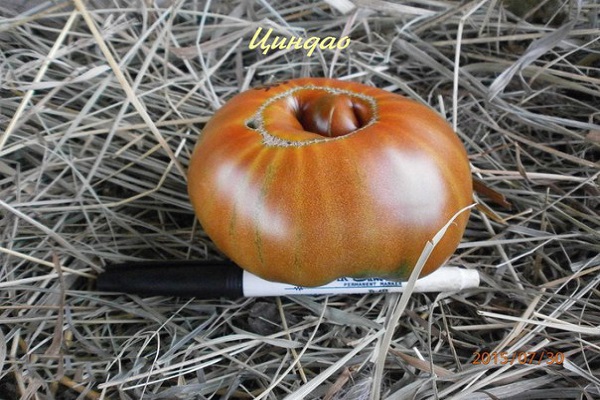
Pros:
- Productivity.
- Unpretentiousness.
- Amicable ripening.
- The fruit does not crack.
- Great taste.
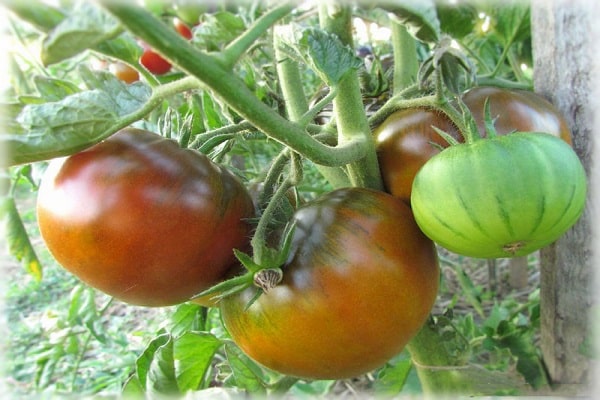
Minuses:
- Mandatory formation.
- Fruits cannot be stored or transported.
- Treatment required for disease prevention.
The opinion of summer residents regarding the Qingdao tomato
Numerous positive reviews about the variety make it more publicity than the producers themselves.
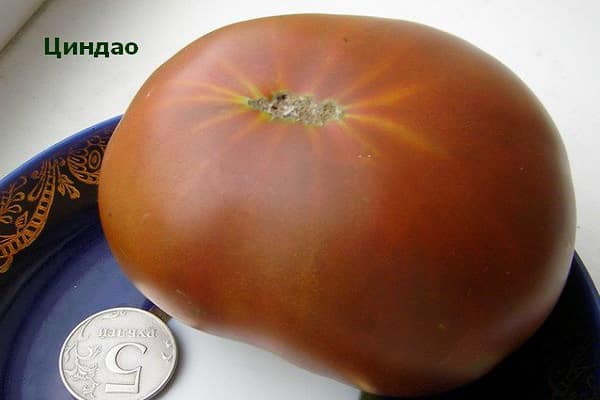
- Marinesa. Favorite black tomatoes of the season. Juicy and very sweet. Will definitely be grown in the future.
- Sveta. Growing a tomato of this variety is how to attack. First, the bush froze. She planted the remainder in the ground, gave the stepsons formed fruits, they were beaten by hail. They survived, got sick with late blight, took them off the green bushes. It turned out very well.
Choke tomatoes decoration of the site and table, and large-fruited and excellent taste are the basis for choosing a variety.
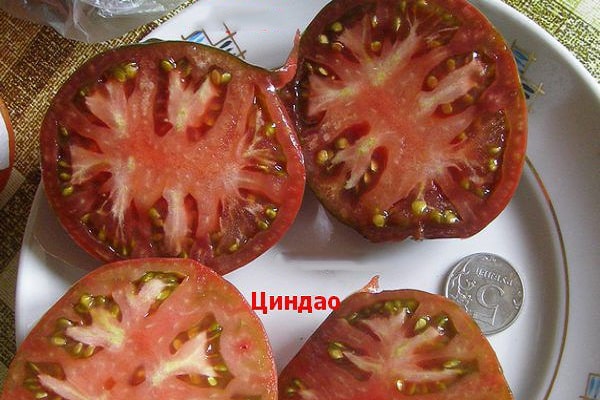
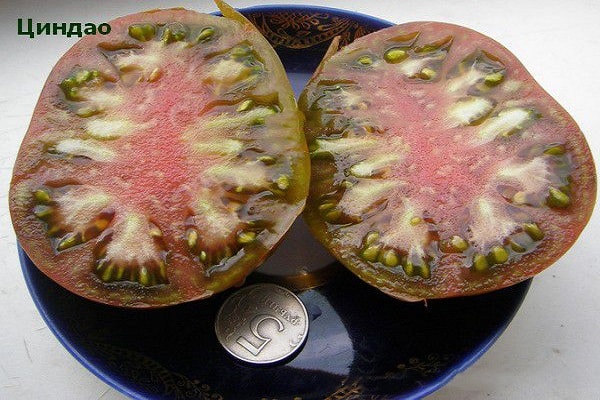
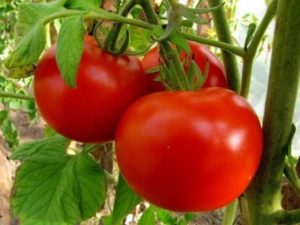
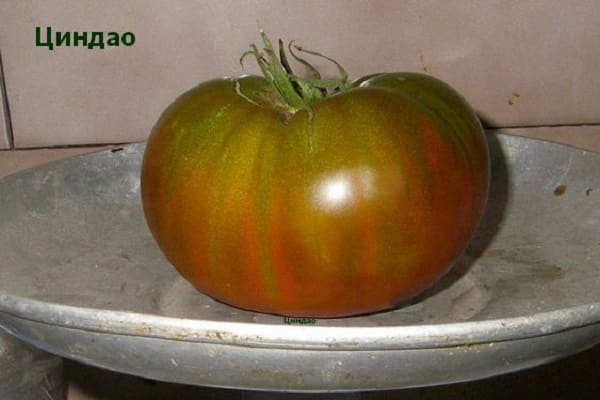
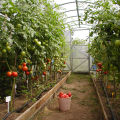

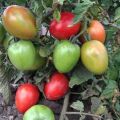
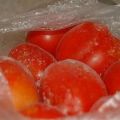

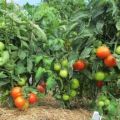
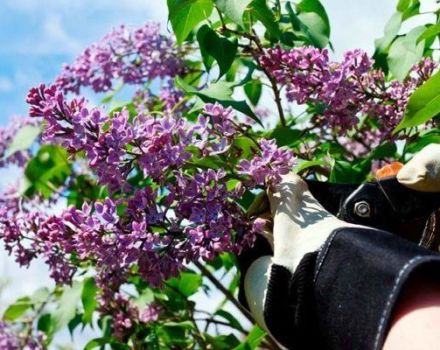

In general, I really liked the variety! The most productive year in 2018. The juices from it were very tasty. Recommend!